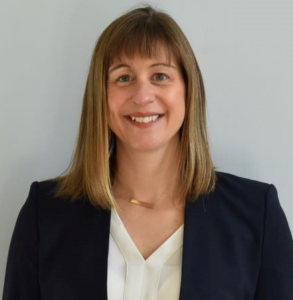Thank You, Jennifer Sunderland: Board Member, Boston Attorney, and Generous Monthly Donor!

Jennifer Sunderland, Board Member
Jennifer is a Massachusetts native who attended college and law school here and clerked for judges in the Massachusetts Trial Court and Supreme Judicial Court. As a public defender for four years, Jennifer witnessed the importance of expanding access to justice within our legal system firsthand. After working for three boutique law firms doing civil litigation, she started her own law firm with a former colleague this past January. They focus on criminal defense and business and employment litigation.
“When I first became involved in MA Appleseed, I particularly appreciated the organization’s approach of engaging stakeholders in order to develop evidence-based solutions,” Jennifer said. “It has a unique mission and approach, and I think its work fills a gap in finding solutions to systemic access to justice problems.”
Jennifer is a champion of MA Appleseed’s Board of Directors. She has spearheaded multiple events like last September’s Trivia Night during which her team, the Lady Killers, came close to winning the ultimate prize! A committed donor, she recently began giving on a monthly basis last November.
“By giving monthly, I can do my part to help ensure MA Appleseed has consistent and regular support,” Jennifer said. “Also, it’s easier because I can give a smaller amount over time rather than a larger amount at one time. Now that donating monthly is an option, I cannot see a downside to doing it. It also saves me from having to think about it because my donation is automatically processed every month – one less task to worry about!”
“Because MA Appleseed is a small organization, it has the ability to be nimble and flexible where other nonprofits might be burdened and slowed by bureaucracy,” she added. “However, because it is smaller, every bit of support counts!”
To join Jennifer and become a monthly donor, click here and sustain MA Appleseed’s work all year with a gift of $15 a month.
Jennifer Sunderland has been a member of Massachusetts Appleseed Center for Law and Justice’s Board of Directors since 2016.
Want to stay informed on the latest issues Massachusetts Appleseed is working on?
Sign up for our mailing list.

